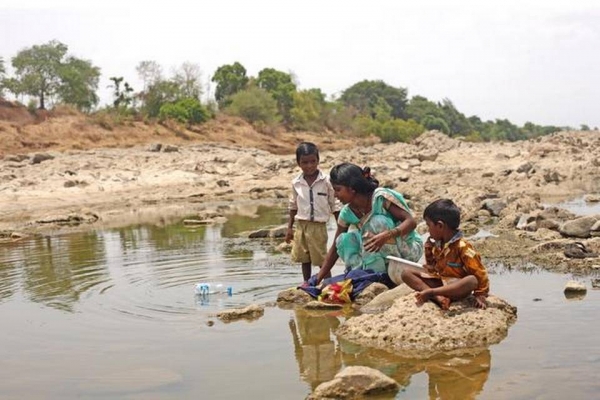The sixth United Nations World Water Development Report Leaving No One Behind was released on World Water Day and the 40th Session of the United Nations Human Rights Council. Theeport was published in collaboration with UNESCO, World Water Assessment Programme, and the 2030 Agenda for Sustainable Development.
In response to growing water insecurity, population growth and climate change, the Report highlights that more than 2 billion persons live in countries currently experiencing high water stress, and that around 4 billion persons are affected by severe water scarcity for at least one month per year. As water stress levels are ever increasing, scarcity and the effects of climate change will only intensify and impact disproportionately the most vulnerable persons across the globe.
The Report, reaffirming its commitment to the 2030 Agenda for Sustainable Development, to combat political inertia and urges the need to identify diverse approaches to achieve the water-related goals of the 2030 Agenda for Sustainable Development.
The report further reiterates that access to safe drinking water and sanitation services are basic human rights, being essential prerequisites for human dignity. It further outlines the main obstacles for achieving the goals set out in the 2030 Agenda for Sustainable Development: exclusion, discrimination, poverty and inequality. The challenge of achieving, on a global level, sustainable water management and access to sanitation remains an impediment to achieving transformative change and development.
In order to ensure that No one is left behind, the Report sets out to Identify “‘who is being left behind” and continues with developing approaches that “can help reach the furthest” left behind. The Report further states that persons living in poverty, and especially women and girls, ethnic minorities, indigenous peoples, migrants and refugees, are most severely af inadequate access to water and sanitation services. The Report highlights that enabling a general safe and sustainable access to water and sanitation for all, while giving priority to those most in need, is an obligation of all states in the pursuit of international human rights.
Furthermore, the Report advocates for the integration of diverse perspectives to achieve equitable and sustainable water management practices for all persons. It also states that it should be a top priority for all stakeholders to “achieve full realization” of this basic human right for the most disadvantaged and those left furthest behind, and to develop, in collaboration with groups who will directly be affected by them, policies in this regard.
Additional challenges faced by displaced persons are of growing concern in regard to the access to water supply and sanitation services. As further outlined, mass displacement further puts a strain to natural resources and water-related infrastructure at transition points and can create new inequalities and conflicts at destination points. The Report concludes that unless policy and practice address ingrained inequality, it will not be possible to achieve a sustainable water management.
As a truly global challenge, water resource management is an area requiring swift, effective action, as otherwise those most at risk will be left behind as the pressure on water resources continues to grow.
To read more, please visit:
https://www.unwater.org/publications/world-water-development-report-2019/
https://news.un.org/en/story/2019/03/1034981
https://sustainabledevelopment.un.org/?menu=1300
[Author: Phoebe Ohlin; Editor: Timo Knaebe]




